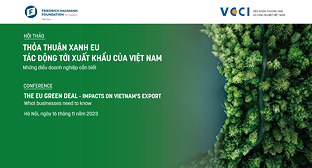Self-Enforcing Trade Agreements: Evidence from Time-Varying Trade Policy
20/07/2010 12:00
Chad P. Bown (The World Bank); Meredith A. Crowley (Federal Reserve Bank of Chicago)
Abstract
This paper empirically examines how governments make trade policy adjustments under a self-enforcing trade agreement in the presence of economic shocks. Using data from the United States between 1997-2006, we ?nd that US antidumping policy is often consistent with the time-varying “cooperative” tari increases modeled in the self-enforcing trade agreement theory of Bagwell and Staiger (1990). Estimates of an empirical model of US antidumping indicate that the likelihood of a US antidumping duty is increasing in the size of the unexpected import surge, decreasing in the volatility of imports and decreasing in the elasticities of import demand and export supply. This suggests that time-varying increases in US tari?rates under antidumping policy could be interpreted as the tari increases necessary to support a self-enforcing trade agreement in the face of unexpected import surges.
Abstract
This paper empirically examines how governments make trade policy adjustments under a self-enforcing trade agreement in the presence of economic shocks. Using data from the United States between 1997-2006, we ?nd that US antidumping policy is often consistent with the time-varying “cooperative” tari increases modeled in the self-enforcing trade agreement theory of Bagwell and Staiger (1990). Estimates of an empirical model of US antidumping indicate that the likelihood of a US antidumping duty is increasing in the size of the unexpected import surge, decreasing in the volatility of imports and decreasing in the elasticities of import demand and export supply. This suggests that time-varying increases in US tari?rates under antidumping policy could be interpreted as the tari increases necessary to support a self-enforcing trade agreement in the face of unexpected import surges.
Các tin khác
- The Dispute Settlement Crisis in the World Trade Organization: Causes and Cures (16/03/2018)
- Modification of trade defence rules regarding non-market economy costs and prices (23/02/2018)
- Research Paper: Options for Disciplining the Use of Trade Remedies in Clean Energy Technologies (03/08/2017)
- Addressing the rise of Trade Remedies against Environmental Goods (03/08/2017)
- Anti-dumping Retaliation - —A Common Threat to International Trade (15/11/2016)
 Home
Home
 About Us
About Us




















